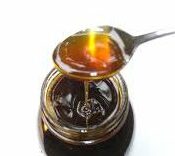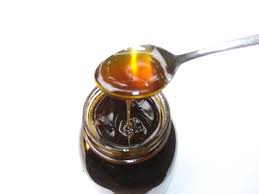Purchase of One Bottle of Organic Molasses
Molasses contains a substantial amount vitamins such as vitamin B6, also known as pyridoxine. The United States Department of Agriculture states that 1 cup of molasses contains 2.25 mg of vitamin B6, well over 100 percent of the recommended daily intake.
Choline, Thiamin and Riboflavin
Molasses contains the B vitamins choline, thiamin and riboflavin. According to the United States Department of Agriculture, 1 cup of molasses contains 44 mg of choline, but only trace amounts of thiamin and riboflavin. Choline may also help in improving memory and treating Alzheimer’s disease.
Molasses is a good source of vitamin B5, also known as pantothenic acid. According to the United States Department of Agriculture, 1 cup of molasses contains 2.7 mg of vitamin B5, a little over half of the daily recommended intake.

Molasses is a good source of niacin, also known as vitamin B3. According to the United States Department of Agriculture, 1 cup of molasses contains 3.13 mg of niacin, about 20 percent of the recommended daily intake. Niacin helps lower bad cholesterol and helps raise good cholesterol.
Vitamin B5 and B6
Molasses is a thick syrupy substance that is the by-product from the commercial processing of sugar cane and sugar beets into refined sugar. Molasses is a thick dark brown syrup that is rich in minerals and vitamins, especially the B vitamins.
Niacin
Molasses is a thick dark brown syrup that is rich in minerals and vitamins, especially the B vitamins. Molasses is a good source of vitamin B5, also known as pantothenic acid. According to the United States Department of Agriculture, 1 cup of molasses contains 2.7 mg of vitamin B5, a little over half of the daily recommended intake. Molasses contains a substantial amount of vitamin B6, also known as pyridoxine. The United States Department of Agriculture states that 1 cup of molasses contains 2.25 mg of vitamin B6, well over 100 percent of the recommended daily intake.

